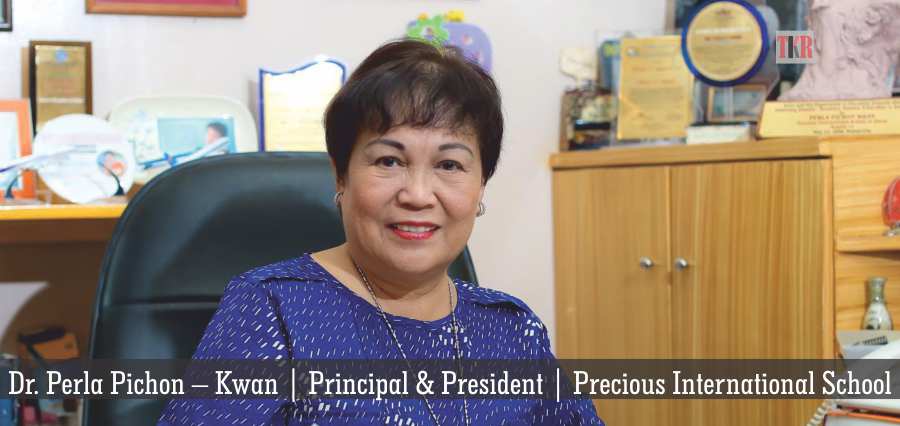I grew up believing that the Philippines, particularly my hometown Davao City, is one of the happiest places in the world. In fact, a lot of my foreigner friends and people I meet when I travel abroad always tell me that Pinoys are joyful people… always with a funny joke or a hilarious punch line. But lately, in the past three to four years, it seems that the country I love is slowly losing its laughter.
In the 2018 World Happiness Report, the Philippines only ranked 71st out of 155 countries. Add this to the report by the World Health Organization that 86M Southeast Asians suffer from depression, with the Philippines having the highest number of cases, and you can probably start to see why this country of over 7,100 islands’ happiness meter is spiralling down the drain.
As a teacher and an educator, I strongly believe that schools play an essential role in battling depression, especially among young people. It is a sad fact that in 2012, majority of the 2000 suicide cases recorded in the Philippines were committed by those between 15 to 29 years old.
The Philippines is a highly conservative country, in such a way that people have a stigma of psychiatrists and that going to therapy or even just visiting a psychiatrist for a consult means that there is “something wrong with you” or that “nasisiraan ka ng ulo” (you are going insane).
This is where school counseling and school counselors come into play.
Filipinos, generally, have a high respect for teachers, and teachers are esteemed as wise, noble members of the community. So, in a society where seeking mental help, particularly going to a psychiatrist is a taboo, the next best, socially acceptable resort is to talk to a counselor.
School counselors provide services in three general areas, academics, socio-personal and career. In my experience working with school counselors and having a Doctorate in counseling myself, the presence of a counselor alone and the idea of having a counselor always available and ready to listen to students, most importantly in high school, already create a positive energy in the school climate. In my school, for instance, the counselor’s office is probably the most visited in the whole campus. Students go to the counselors for academic counseling or career guidance, or just plainly to talk and unload.
I make it a point to have at least one counselor in school who is young, somebody close to the high school learners’ age. I think that this helps the children open up more to the counselor without the feeling of being patronized by adults. In the same way, I think younger counselors can also relate to “highschoolers” in a way older counselors cannot.
Younger counselors have the ability of relating to their high school counselees as contemporaries, giving them a unique, direct perspective of where their counselees are coming from. And, as much as we might not want to accept it, older counselors may have a difficult time wrapping their minds around how important social media and the perception one projects of him/her to the cyberworld is to the young.
It is amusing, actually, that sometimes, parents who are already in their 40s and 50s come and talk to our counselors who are half their age, and unload their problems. There have been many times in the past where I received reports of older parents talking to our 21-year old counselor about their problems with their spouses (even to the point of sharing his/her spouse’s extra marital trysts though this particular counselor is still young and single!), their careers and their children. I guess for a matured parent to unload to a counselor young enough to be his/her child takes away the shame of having to recognize and accept his/her failures to a contemporary, somebody his/her own age, someone who might also be a parent like him/her. During these times, I am reminded of how the culture of Filipinos and Filipino parents having always to be strong and dependable, that the notion of talking to someone and getting help is seen as a sign of weakness, gets in the way of them maintaining and keeping a sound mental health.
Schools have a unique opportunity to change the way Filipinos view counseling, therapy and mental health. Given the compulsory nature of education in the country, where almost everybody has access to public and private education and the youth spending most of their waking hours in schools, schools and school counselors have the access and the opportunity to help combat not only academic, socio-personal and career challenges, but also other long term effects of poor mental health.
About the Author
Dr. Perla Pichon – Kwan is the principal and president of Precious International School of Davao. She has a Master’s Degree in Educational Management and a Doctorate in Philosophy majoring in Guidance and Counseling. She is one of the Philippines’ Ten Most Outstanding School Principals (2006) and an awardee of the 2016 Leaders and Achievers in Davao (LEAD Awards). She is an educational consultant, a book author, a resource speaker, a teacher and a principal. She is a devoted wife to Engr. Rogelio G. Kwan, a supportive mother to four accomplished and successful professionals who all help run her school, PISD, with her and a doting lola (grandmother) to ten amazing grandchildren.









